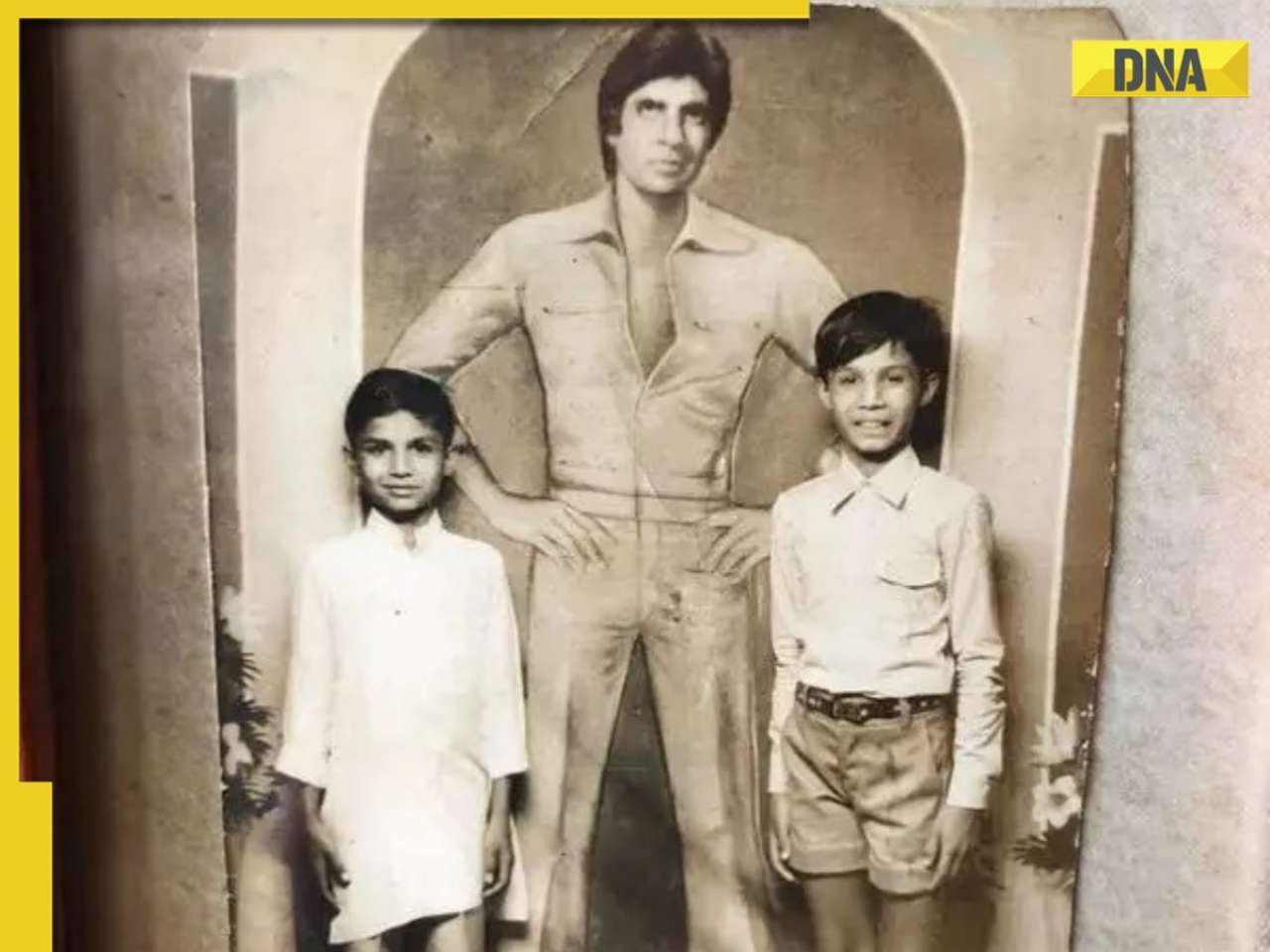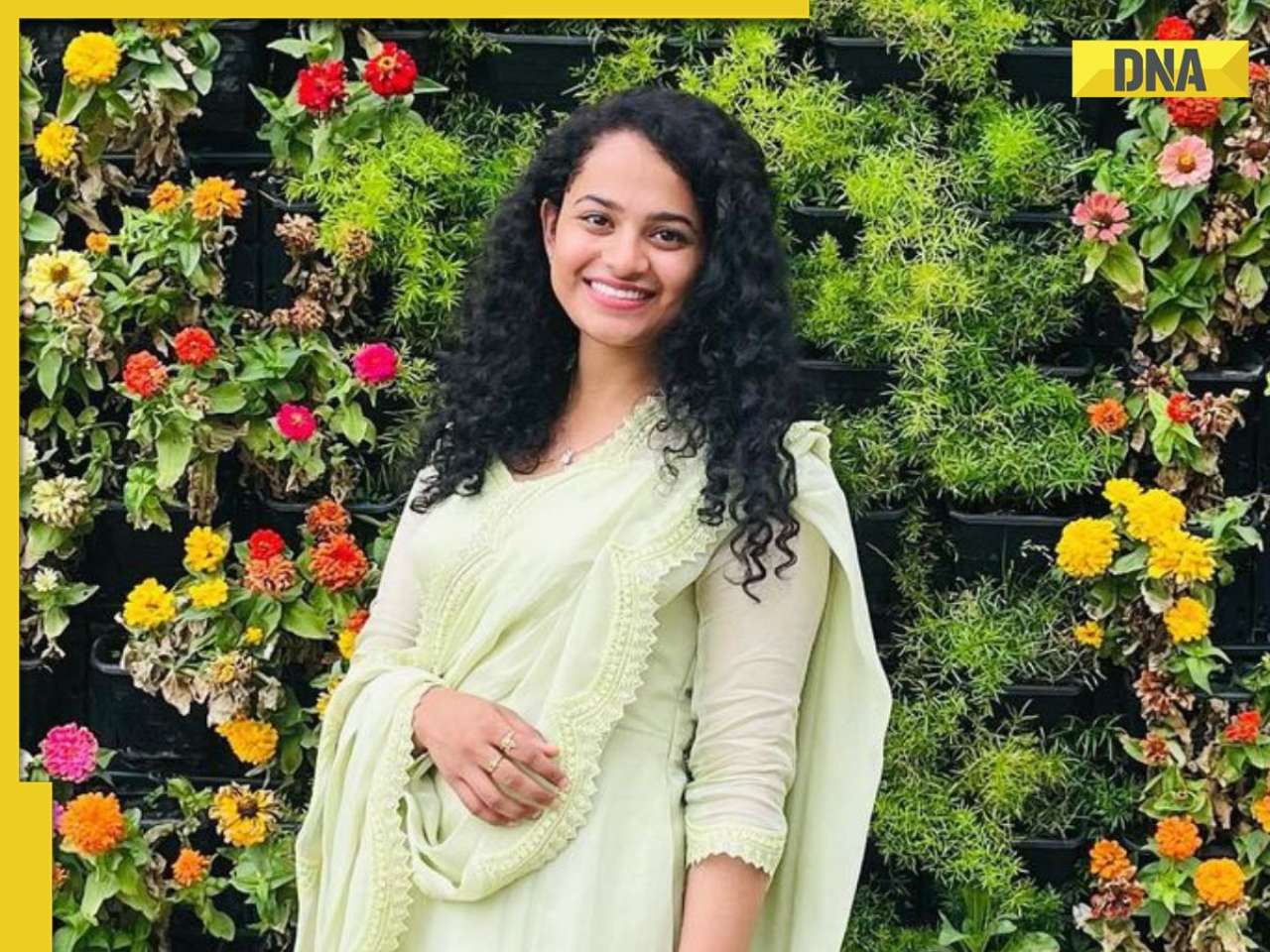Hafiz Mohd Saeed, suspected to be the mastermind behind the audacious Mumbai terror attacks, was set free by the Lahore HC.
In a setback to the 26/11 probe, banned Jamaat-ud-Dawah chief Hafiz Mohd Saeed who has been under house arrest for nearly six months for his suspected role in the Mumbai terror attacks, was set free by the Lahore High Court on Tuesday which held his detention as illegal.
A close aide of 59-year-old Saeed, Col (retd) Nazir Mohammad, also held in connection with the November 26 attacks in Mumbai, was freed alongwith Saeed.
In a brief order, a three-member bench of the High Court said, "the court accepts the petition of Hafiz Mohammad Saeed and Col (retd) Nazir Ahmed against their detention, which is illegal. The court orders their immediate release." A detailed order will be pronounced late.
JuD activists, who gathered at the court, began shouting slogans in support of Saeed following the order. A JuD spokesman hailed the verdict and said the organisation will continue its "relief activities".
Saeed, also founder of the LeT, was put under house arrest on December 11 last year after the UN Security Council banned JUD, declaring it a front for Lashkar-e-Taiba, which is blamed by India for the Mumbai attacks that left 160 people dead.
JuD chief's counsel AK Dogar contended that there was no evidence of Saeed's involvement and that his detention violated Pakistan's constitution and laws.
Striking a defiant note, Saeed vowed to continue his struggle against what he described as the "India occupation" of J and K.
Denying any involvement of JuD in the Mumbai attacks, Saeed told a press conference held at a mosque in his hometown that his detention was a "conspiracy" against Pakistan.
Dogar, who shouted slogans like 'Allah-o-Akbar' (God is great) along with Saeed's supporters after emerging from the court, said the JuD chief had been detained on December 11 last year without any valid grounds.
During an earlier hearing of Saeed's petition, Pakistan had for the first time admitted that JuD had links with al-Qaeda.
The judges said the government "has no sufficient grounds to detain the petitioners for preventive measures". They added that the government could not rely on the UN Security Council resolution, which imposed restrictions on the JuD, to detain as two men as this was "not desired" by the resolution.
The bench quashed the "impugned detention orders" for Saeed and Ahmed and ordered that they should be "released forthwith if not required in any other case".
The government of Punjab province said it would appeal against the High Court's order in the Supreme Court. Provincial Home secretary Nadeem Hasan Asif said the government was consulting legal experts about filing a review petition in the apex court.
Official sources said the appeal would be filed within the next few days.
The High Court issued its order after hearing arguments by the JuD chief's counsel AK Dogar, who claimed the detention of the two men violated Pakistan's constitution and laws.
Dogar said the UN Security Council had only sought a freeze on the JuD's assets and a travel ban on its leaders and the world body had not demanded the arrest of JuD leaders.
He claimed it was not binding under Pakistani laws to implement UN Security Council resolutions.
The Deputy Attorney General of the federal government and the Advocate General of Punjab province rebutted Dogar's arguments.
The Advocate General said it was binding on Pakistan to implement Security Council resolutions as the country was a signatory to the UN Charter.
Saeed's house was declared a sub-jail during his detention. "We will provide security to Saeed if we are asked by our high-ups," SSP (Operations) Shafiq Ahmed said.
During an earlier hearing of Saeed's petition challenging his detention, Pakistan's Attorney General Latif Khosa had told the High Court that the government had evidence which showed the JuD's "prima facie links" with Al Qaida. This was the first time that Pakistan ackowldged the JuD's links with the Al-Qaida.
Saeed and Ahmed had challenged their detention through a petition in the High Court. Saeed and several other JuD leaders were placed under house arrest in the wake of the Mumbai terrorist attacks but most of them were subsequently freed.
Five LeT activists, including Zakiur Rehman Lakhvi and Zarar Shah, are currently being tried by an anti-terrorism court in Rawalpindi for alleged involvement in the Mumbai attacks.
![submenu-img]() Meet actress who quit high-paying job for films, director replaced her with star kid, had no money, now lives in...
Meet actress who quit high-paying job for films, director replaced her with star kid, had no money, now lives in...![submenu-img]() Indian football legend Sunil Chhetri announces retirement, to play last match on…
Indian football legend Sunil Chhetri announces retirement, to play last match on…![submenu-img]() This star kid's last 3 films lost Rs 5000000000 at box office, has no solo hit in 5 years, now has lost four films to...
This star kid's last 3 films lost Rs 5000000000 at box office, has no solo hit in 5 years, now has lost four films to...![submenu-img]() Blinkit now gives free dhaniya with veggie orders, thanks to Mumbai mom
Blinkit now gives free dhaniya with veggie orders, thanks to Mumbai mom![submenu-img]() Meet actress viral for just walking on screen, belongs to royal family, has no solo hit in 15 years, but still is…
Meet actress viral for just walking on screen, belongs to royal family, has no solo hit in 15 years, but still is…![submenu-img]() Meet woman who first worked at TCS, then left SBI job, cracked UPSC exam with AIR...
Meet woman who first worked at TCS, then left SBI job, cracked UPSC exam with AIR...![submenu-img]() Meet engineer, IIT grad who left lucrative job to crack UPSC in 1st attempt, became IAS, married to an IAS, got AIR...
Meet engineer, IIT grad who left lucrative job to crack UPSC in 1st attempt, became IAS, married to an IAS, got AIR...![submenu-img]() Meet Indian woman who after completing engineering directly got job at Amazon, then Google, Microsoft by using just...
Meet Indian woman who after completing engineering directly got job at Amazon, then Google, Microsoft by using just...![submenu-img]() Meet man who is 47, aspires to crack UPSC, has taken 73 Prelims, 43 Mains, Vikas Divyakirti is his...
Meet man who is 47, aspires to crack UPSC, has taken 73 Prelims, 43 Mains, Vikas Divyakirti is his...![submenu-img]() IIT graduate gets job with Rs 100 crore salary package, fired within a year, he is now working as…
IIT graduate gets job with Rs 100 crore salary package, fired within a year, he is now working as…![submenu-img]() DNA Verified: Is CAA an anti-Muslim law? Centre terms news report as 'misleading'
DNA Verified: Is CAA an anti-Muslim law? Centre terms news report as 'misleading'![submenu-img]() DNA Verified: Lok Sabha Elections 2024 to be held on April 19? Know truth behind viral message
DNA Verified: Lok Sabha Elections 2024 to be held on April 19? Know truth behind viral message![submenu-img]() DNA Verified: Modi govt giving students free laptops under 'One Student One Laptop' scheme? Know truth here
DNA Verified: Modi govt giving students free laptops under 'One Student One Laptop' scheme? Know truth here![submenu-img]() DNA Verified: Shah Rukh Khan denies reports of his role in release of India's naval officers from Qatar
DNA Verified: Shah Rukh Khan denies reports of his role in release of India's naval officers from Qatar![submenu-img]() DNA Verified: Is govt providing Rs 1.6 lakh benefit to girls under PM Ladli Laxmi Yojana? Know truth
DNA Verified: Is govt providing Rs 1.6 lakh benefit to girls under PM Ladli Laxmi Yojana? Know truth![submenu-img]() In pics: Taarak Mehta Ka Ooltah Chashmah actress Deepti Sadhwani dazzles in orange at Cannes debut, sets new record
In pics: Taarak Mehta Ka Ooltah Chashmah actress Deepti Sadhwani dazzles in orange at Cannes debut, sets new record![submenu-img]() Ananya Panday stuns in unseen bikini pictures in first post amid breakup reports, fans call it 'Aditya Roy Kapur's loss'
Ananya Panday stuns in unseen bikini pictures in first post amid breakup reports, fans call it 'Aditya Roy Kapur's loss'![submenu-img]() Remember Harsh Lunia? Just Mohabbat child star, here's how former actor looks now, his wife is Bollywood's popular...
Remember Harsh Lunia? Just Mohabbat child star, here's how former actor looks now, his wife is Bollywood's popular...![submenu-img]() Mother's Day 2024: Bollywood supermoms who balance motherhood, acting, and run multi-crore businesses
Mother's Day 2024: Bollywood supermoms who balance motherhood, acting, and run multi-crore businesses![submenu-img]() Rocky Aur Rani's Golu aka Anjali Anand shocks fans with drastic weight loss without gym, says fitness secret is...
Rocky Aur Rani's Golu aka Anjali Anand shocks fans with drastic weight loss without gym, says fitness secret is...![submenu-img]() Haryana Political Crisis: Will 3 independent MLAs support withdrawal impact the present Nayab Saini led-BJP government?
Haryana Political Crisis: Will 3 independent MLAs support withdrawal impact the present Nayab Saini led-BJP government?![submenu-img]() DNA Explainer: Why Harvey Weinstein's rape conviction was overturned, will beleaguered Hollywood mogul get out of jail?
DNA Explainer: Why Harvey Weinstein's rape conviction was overturned, will beleaguered Hollywood mogul get out of jail?![submenu-img]() What is inheritance tax?
What is inheritance tax?![submenu-img]() DNA Explainer: What is cloud seeding which is blamed for wreaking havoc in Dubai?
DNA Explainer: What is cloud seeding which is blamed for wreaking havoc in Dubai?![submenu-img]() DNA Explainer: What is Israel's Arrow-3 defence system used to intercept Iran's missile attack?
DNA Explainer: What is Israel's Arrow-3 defence system used to intercept Iran's missile attack?![submenu-img]() Meet actress who quit high-paying job for films, director replaced her with star kid, had no money, now lives in...
Meet actress who quit high-paying job for films, director replaced her with star kid, had no money, now lives in...![submenu-img]() This star kid's last 3 films lost Rs 5000000000 at box office, has no solo hit in 5 years, now has lost four films to...
This star kid's last 3 films lost Rs 5000000000 at box office, has no solo hit in 5 years, now has lost four films to...![submenu-img]() Meet actress viral for just walking on screen, belongs to royal family, has no solo hit in 15 years, but still is…
Meet actress viral for just walking on screen, belongs to royal family, has no solo hit in 15 years, but still is…![submenu-img]() Meet director who is set to make India's most expensive film, studied at IIT Bombay, worked with Aamir, Big B, won..
Meet director who is set to make India's most expensive film, studied at IIT Bombay, worked with Aamir, Big B, won..![submenu-img]() Aishwarya Rai jets off to Cannes Film Festival with Aaradhya, mysterious injury in viral video leaves fans worried
Aishwarya Rai jets off to Cannes Film Festival with Aaradhya, mysterious injury in viral video leaves fans worried![submenu-img]() Blinkit now gives free dhaniya with veggie orders, thanks to Mumbai mom
Blinkit now gives free dhaniya with veggie orders, thanks to Mumbai mom![submenu-img]() Meet man, an Indian who entered NASA's Hall of Fame by hacking, earlier worked on Apple's...
Meet man, an Indian who entered NASA's Hall of Fame by hacking, earlier worked on Apple's...![submenu-img]() 14 majestic lions cross highway in Gujarat's Amreli, video goes viral
14 majestic lions cross highway in Gujarat's Amreli, video goes viral![submenu-img]() Here's why Isha Ambani was not present during Met Gala 2024 red carpet
Here's why Isha Ambani was not present during Met Gala 2024 red carpet![submenu-img]() Woman kisses massive king cobra on head in viral video, internet reacts
Woman kisses massive king cobra on head in viral video, internet reacts























































)
)
)
)
)
)